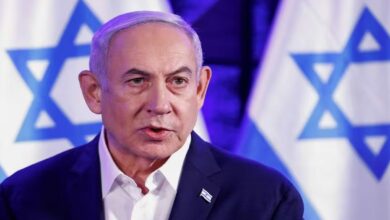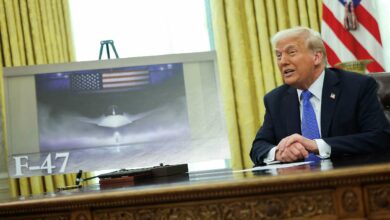Israel and Hezbollah threaten to increase their cross-border attacks on Sunday
On Sunday, Israel and Hezbollah issued threats to intensify their cross-border strikes in defiance of world calls to retreat from the verge of full-scale conflict that might devastate the West Asian area. The IDF delivered a slew of blows to the Iranian-backed group last week after coming under heavy assault from Lebanon’s rockets.

Soon after, a resolute Hezbollah said that the organization had entered a “new phase” of its conflict with Israel. Not to be discouraged, Lt. Gen. Herzi Halevi, the Chief of Staff of the Israel Defense Forces, promised further killings and the annihilation of Hezbollah. Following the firing of more than 150 rockets and drones into Israel by the Lebanese militia, Halevi said on Sunday that “Hezbollah will pay will only grow.”
“We counsel civilians in Lebanon…”
The Israeli military pledged to carry out more “extensive and precise” attacks on the Iran-backed group on Monday and instructed residents in Lebanon to stay away from Hezbollah sites in anticipation of a possible escalation.
In a media conference, military spokesman Rear Admiral Daniel Hagari said, “We advise civilians from Lebanese villages located in and next to buildings and areas used by Hezbollah for military purposes, such as those used to store weapons, to move out of harm’s way immediately for their own safety.” “The IDF will launch comprehensive and targeted strikes against terror targets that are deeply ingrained in Lebanon.” According to Hagari, since Monday morning, the military has continued to target locations affiliated with Hezbollah.
“Attrition War”
Former IDF Air Defense commander Brig.-Gen. Zvika Haimovich expressed his doubts about his nation’s current military approach in an interview with Maariv on Sunday, claiming it is out of step with the war’s objectives to restore the North. “On Tuesday and Wednesday, there were cyber and psychological operations, and on Friday, Ibrahim Aqil was intentionally killed. But the essential issue is, “Are these tactical moves actually contributing to the larger goal’s achievement?”
Regarding Hassan Nasrallah’s vow to exact vengeance on Israel, Haimovich said, “Narratively, Nasrallah acknowledged for the first time that ‘we took the greatest hit.'” However, he quickly reiterated what he has been saying from the start of the war: Israel is involved in several fronts of warfare. His stance is unambiguous: Hezbollah will suspend its fire if Gaza remains silent. He believes that the route of attrition is the best one.
“Unwritten guidelines”
Although Israel’s tactical maneuvers have been remarkable, Haimovich emphasized that they are insufficient to compel Nasrallah to agree to a ceasefire. “Even if these efforts are effective, his status won’t change.” He cautioned that Israel had to be prepared for a reaction from the Lebanese group in the event that they violate the existing “unwritten rules” between the two countries.
“We have to be ready for the potential that Hezbollah would launch an attack that goes beyond its typical reach—whether it be in the form of drone strikes on Haifa, national infrastructure in locations like Hadera or Tel Aviv, or both. We also need to be on the lookout for new fronts that could open up, as I think Iran and Hezbollah are working together. Unresolved matters from Iran may also be included in any answer, he was said by the Jerusalem Post.
“De-escalate by escalating.”
Israeli media said on Sunday night that the US administration had sent a strong warning to Israel, advising it not to launch the most intense military action against Hezbollah in the midst of rising tensions on the northern border. The Biden administration worries that the US may get involved in a wider battle if there is a full-scale war in the area. According to KAN News, Washington’s communication to Israel underscores prudence and expresses worries over the latest security escalation.
According to reports, the US is aware of Israel’s new tactical strategy, known as “escalate to de-escalate,” but also issues a warning of going too far in reacting. Even while reacting, US officials allegedly told their Israeli colleagues to “leave room for a diplomatic solution.” “The American message emphasizes an understanding of Israel’s need to respond to Hezbollah’s provocations,” Channel 12 News cited unidentified diplomatic sources as saying. To prevent more serious conflict, moderation is obviously called for.





